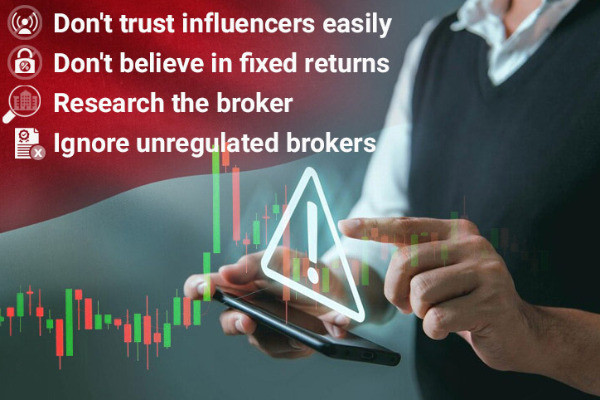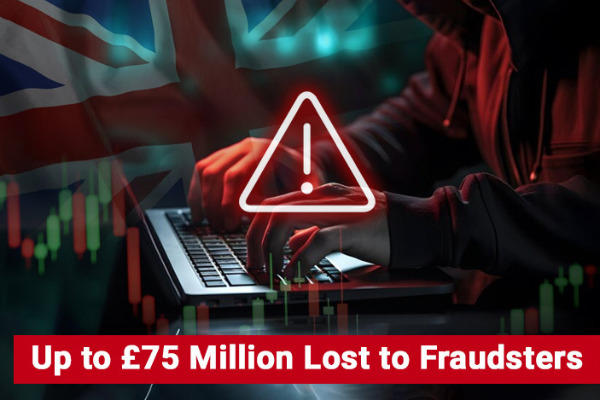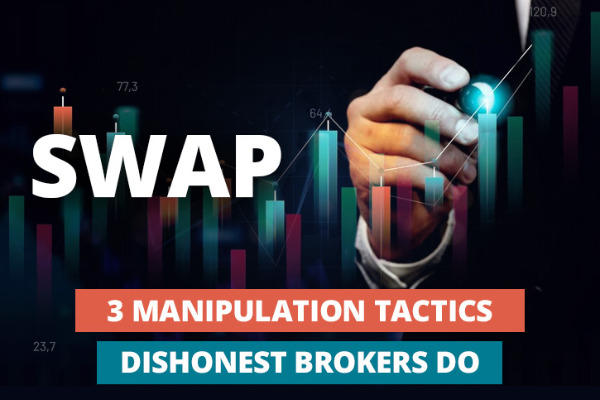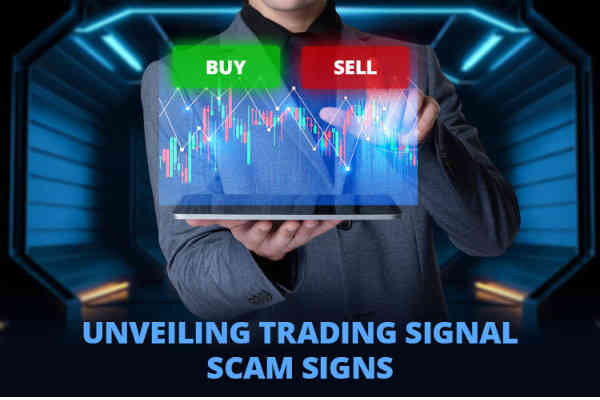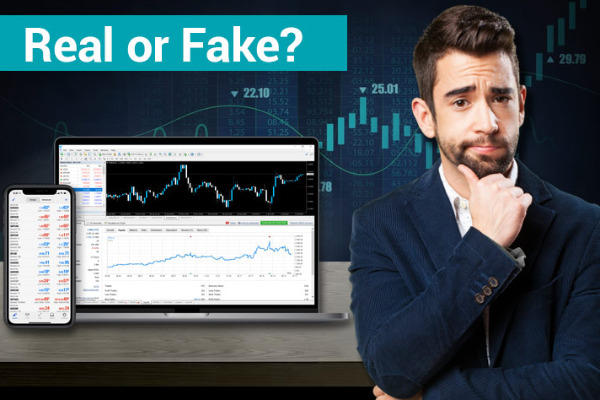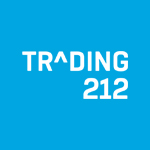The danger of money game has now reached the forex industry. Several of them have disguised themselves to attract new forex traders who can't tell the difference between a legit forex broker and a money game.

The popularity of forex trading around the world is undebatable. In recent years, the global forex market saw an average daily turnover of approximately 5.1 million U.S. dollars. Each day, the sum of all transactions in the forex market, including currency options and futures contracts, amounted to almost 6.6 trillion U.S. dollars. With the enormous amount of money in an unregulated market, broker scams and money games are often seen looking for prey.
These scams target new traders with little to no understanding of how forex markets work and how to choose the right broker. Therefore, it is relatively easy for frauds to fool their victims through various methods and forms. They usually seek only one result: loss of money for the traders and a pocket full of funds for themselves.
While some of the scams had been sanctioned by the severe enforcements of the regulatory agencies, many more keep popping out, ready to fill the gap. The rise of internet-based trading platforms also exacerbates the risks and creates more opportunities for fraud and illegal money games. Suspicious brokers use manipulative software to rig the system and make it look very appealing and profitable for their clients.
Considering the risk and the possibility of money games in forex markets, it is essential to stay alert and understand the red signals of broker scams as explained below.
Contents
Types of Broker Scams
Old Scam: The Point Spread Scam
At their most common form, forex broker scams involved the manipulation of the spread. The point spread between the bid and the ask can be seen as a reflection of the commission of a transaction. The spread typically differs in each currency pairs. The scam occurs when that point spread widens significantly and unrealistically. When forex brokers offer wide bid-ask spreads on particular currency pairs, it will be harder for traders to earn profits on their trades. This practice is most likely to be shady and needs further monitoring by traders.
For example, brokers who offer spreads of seven pips or even more in the EUR/USD instead of the normal two-point to three-point spread can potentially be a scam. How come? The wide gap means any potential gains resulting from a good position could be eaten away by the commissions. These commissions will most likely go straight to the broker's pocket, depending on how the forex broker structures their trading fees.
This type of scam has quieted down in the past ten years, and today, many brokers claim that they don't take extra commissions from bid-ask spreads. This happens mainly because spreads are now more competitive and regulated, and only smaller spreads are permitted. But don't be fooled by this notion because brokers can still take commissions from the difference in the spread, only with a smaller amount than before.
Also, be careful of any offshore retail brokers. Keep in mind that this type of scam will never be gone entirely. When their true intention is revealed, it's relatively easy for them to disappear with the money and start a new fraud under a different brand.
Modern-day Scams: Commingling Funds, Robot System, and Signal-Seller
In the modern-day scam, there are more things that brokers can do. First, brokers can do the commingling of funds. Without a segregated account, traders cannot ensure that their funds are not mingled with the broker's. This makes it easier for brokers to use traders' money for their own benefits. This is why trading in a segregated account is essential, especially if you're registered in an unregulated broker.
For the robot system, scammers can generate a system to make automatic trades that earn vast profits even when you . Computers do most of these systems, hence the name "robot" system. If the system can't detect valid signals, it will generate random buy and sell entries, which often cause traders to lose.
Lastly, the signal-seller scam. This type of scam is quite popular among the brokers that claim to identify perfect opportunities to buy or sell a currency pair based on professional recommendations. They "sell" their experience and trading abilities, as well as (mostly fake) testimonials. Although there are honest signal-sellers, the fake ones are just too many, making it difficult for even an experienced trader to look for a good signal provider.
5 Signs A Forex Broker is A Money Game
1. Promising a Fixed Return
As a trader, it is critical to understand that forex trading is never free of risk. In other words, no trading system is completely accurate in predicting the price direction. Money games would fool traders to believe that it's possible to trade without losing money.
They would try to attract traders by giving fixed interests. For your information, a true forex broker would give interest in the form of swap rates, depending on the interest rate of the currency pair traded and the trading position that the trader opened. The interest rate itself is based on the overnight interest in the interbank market, which is derived from the central banks' interest rates. Among the major countries, the highest benchmark interest rates per year are from Australia, Canada, and New Zealand (0.25%), whereas the lowest is from Switzerland (-0.75%). Therefore, if a broker can promise a fixed yield of up to 10% or more per month, then it's a money game.
See also: Forex Brokers with the Lowest Swap Rates for Major Pairs
2. Can't Provide Any Track Record
Some brokers offer beginners a chance to allocate their money in desired proportion using the PAMM (Percentage Allocation Management Module) system and let professional traders run the clients' transactions. In return, these professional traders will receive commissions from the profits of their clients. This type of trading can also be a scam because no matter how excellent and professional a trader is, there is no guarantee that they can always make a massive profit in a short period.
To avoid the money game, traders need to be aware and choose the right professional PAMM trader by checking their past trading records. A good broker will most likely provide access to their PAMM managers' track records, including how long they've been trading, how big is their profitability, how much is the drawdown, and so on. Suppose a broker does not give its clients access to this information, then the broker is likely a scam since it leads clients to practically gamble their money.
3. Withdrawal Difficulties
In forex trading, brokers connect traders to the market. In other words, traders only deposit their money to the brokers so they can trade in the forex market. Brokers do provide leverage, but capital is still needed as the margin. As a capital, the funds can be reduced if you're losing and increased if your trading is profitable. More importantly, a true forex broker would allow and provide access for traders to withdraw their funds anytime through various methods such as bank transfer or e-payment.
On the other side, if a broker prohibits or restricts traders to withdraw their funds, then there must be something fishy in their practices. In the money game, brokers can use the funds for business purposes, so they forbid their traders from withdrawing.
4. Withdrawal Process Takes More than 10 Business Days
Apart from the broker's withdrawal restriction, traders also need to consider the time needed to process the withdrawal. Essentially, withdrawing funds from forex brokers does take time because it involves transfers between countries. However, a dedicated broker will not complicate the withdrawal processed by their clients.
Usually, they provide the e-payment facility that allows international transfers to be done instantly from the broker's account to the client's account in the same e-payment facility. Even if the broker is not using e-payment, normally it only takes about a few hours on weekdays to process.
If the withdrawal process takes more than ten days in normal circumstances (no technical error or system malfunction), you need to be aware of the broker's money game and scam. If this is the case, brokers usually manipulate the money by giving new clients' money to the existing clients. They will need time to pay off their existing clients because the payment depends on the arrival of new clients, hence the long time they need to process the withdrawal.
5. Unclear Regulations and Office Address
In this modern era, we should access the necessary information of a broker easily via the internet. A trustworthy broker will have their address on their website to show that they are regulated and reliable. Some of the examples are:
In addition to that, the location of a forex brokerage office can also be monitored using Google Maps or Google Earth. Therefore, there is no excuse for a broker only to have a website address but does not provide the address of a physical office. Nowadays, it's easy to build a reputable website and manipulate the general overview of the website. As a result, scams in "online businesses" also pop out here and there. That is why traders should check the background and detailed information about the broker thoroughly to ensure that it is regulated, trusted, and legal.
Conclusion
Forex broker scams' main problem is the lack of transparency and unclear regulatory structures with insufficient oversight. Most scam brokers are not completely honest with the traders about their operation, strategy, and identity. Sometimes they also promise unrealistic offers and services, which often succeed in getting traders to believe them.
To avoid that, you need to understand that forex trading is not without risk and will not give you an instant profit. In fact, forex trading is mostly about patience and good analysis. Always be wary of new forex scams as the growing popularity of forex trading will only bring new types of scammers to the market. However, keep in mind that not all forex brokers are scammers; there are still legitimate brokers doing business in the market.

 Dedicated FREE FOREX VPS
Dedicated FREE FOREX VPS Free FOREX Virtual Private Server
Free FOREX Virtual Private Server MT4 Demo Contest, Get $500
MT4 Demo Contest, Get $500 Sign Up for an Account, Claim 60% Deposit Bonus
Sign Up for an Account, Claim 60% Deposit Bonus Free MT4/MT5 VPS 2024
Free MT4/MT5 VPS 2024 Send E-mail and Get Free Merchandise
Send E-mail and Get Free Merchandise $1K Refer a Friend Bonus for Pepperstone Pro clients
$1K Refer a Friend Bonus for Pepperstone Pro clients Maximize Your Earnings with 100% Deposit bonus
Maximize Your Earnings with 100% Deposit bonus Trade to Win, $5,000 Monthly Demo Contest
Trade to Win, $5,000 Monthly Demo Contest Claim 30% + 15% Deposit Bonus from LiteFinance
Claim 30% + 15% Deposit Bonus from LiteFinance
